![]()
![]()
Recommended Reading
from Bruce
David Fear: In Praise of 'John Wick,' The Last Great American Action-Movie Franchise (Rolling Stone)
How a B-movie star vehicle has, over three "chapters," transformed itself into an action-cinema connoisseur's dream come true.
Mike Pesca: "'No War' is the Best Trump Can Do" (Slate; 35 minutes of audio)
The Iraq War was worse-by measure of blood, treasure, and geopolitical consequences-than anything our current president has done so far.
Greg Sargent: Democrats are badly blowing it against Trump. A brutal new TV ad shows how.(Washington Post)
A new ad that impeachment proponent Tom Steyer is set to launch illustrates this well. Notably, rather than merely making the case for an inquiry, the ad trains its fire at Democrats for failing to initiate one.
Paul Waldman: Trump's businesses are faltering. That's good news. (Washington Post)
At the very least, one would hope that the Trump disaster will hang over any aspiring politician who comes along and says, "What we need in Washington isn't more politicians, it's more businesspeople like me." If that nonsense is greeted with, "Oh yeah? What about Trump? He said we should elect him because he was rich and successful, and look what happened," then there may be some good that comes out of this dark time.
Pippa Bailey: Why three viewings of Avengers: Endgame was nine hours well spent (New Statesman)
The real motivation is the emotional buy-in. The film brings together at least 25 much-loved characters from all corners of the Marvel universe, each demanding a fitting character arc.
Mary Beard: How shall I vote? (TLS)
I know I am not going to vote for a pro-Brexit (esp pro hard Brexit) party. So that's some ruled out. I did notice that one of the Brexit party candidates' first names were 'Paul Joseph'. Now, one cant blame the kids for the parents, but when I see someone in a broadly (not entirely, I grant) right wing party with the same first names as Goebbels, I am a bit anxious.
Mary Beard: The death of the conference (TLS)
Anyone who knows about the troubles at last year's SCS conference, will know exactly what I mean. It was so horrible (partly, but by no means only, because of the ad hominem attacks on me, including a particularly unpleasant anonymous blog…. about a conference speaker, for heavens sake!), that I decided I would never go to another one as long as I lived. No doubt there are a good few who will be pleased at this news. But for me the pain far outweighed the pleasure.
David Bruce's Amazon Author Page
David Bruce's Smashwords Page
David Bruce's Blog #1
David Bruce's Blog #2
David Bruce's Blog #3
David Bruce's Lulu Storefront
David Bruce's Apple iBookstore
David Bruce has over 100 Kindle books on Amazon.com.
Presenting
Michael Egan



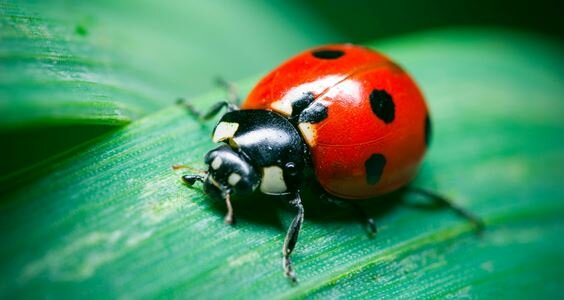
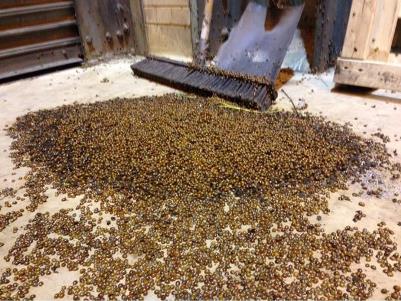


 took the day off.
took the day off.
 In memory.
In memory.

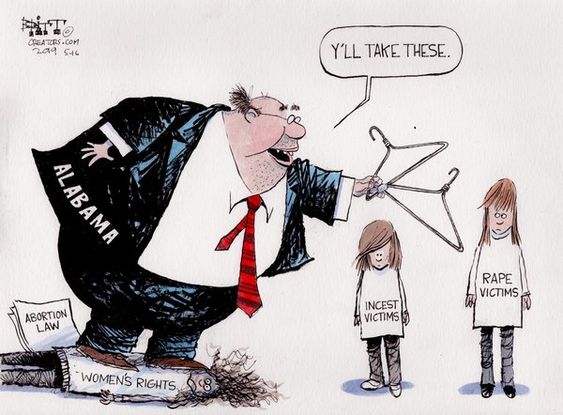
Reader Suggestion
Michelle in AZ
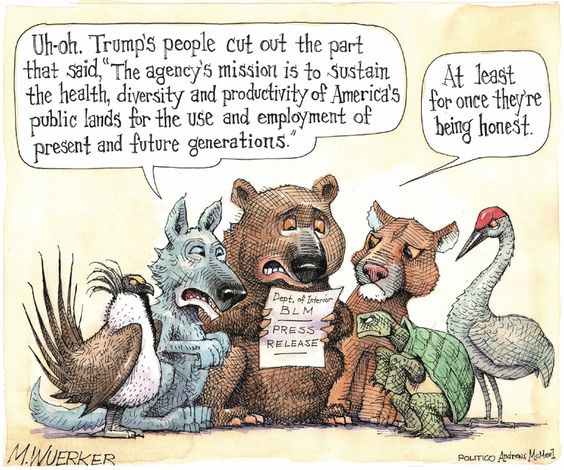
from Bruce
Anecdotes
• Syndicated columnist Marc Dion (the Mike Royko of today, aka the best columnist today) is good with money, normally saving almost 30 percent of his salary. He does the very good thing of saving right away, instead of waiting until the end of the month to save, because at the end of the month no money is left over to save. Basically, he gets his paycheck, then he pays his bills, puts money into savings, and sticks the rest of his money in his pocket. As long as he has money in his pocket, he spends. When the money in his pocket runs out, he stops spending until his next paycheck. I get the feeling that he eats roast beef just after he gets paid and sometimes he eats bologna just before he gets paid. He says, "I can read my bankbook like some people read a novel. In fact, when one of my banks stopped using bankbooks, I moved my account. I like to see myself saving money." He also remembers the example of his father, and emulates him. When Marc had knee surgery and had to live for a while on disability pay (60 percent of his normal salary), he stopped drinking. He remembers the uncertain economic times his family went through for a while when he was a small child. He says, "My dad bounced from job to job for a while. When he lost a job, he would take his last drink on the day he got laid off and his next drink when he got a new job. 'I'm not buying a drink with my unemployment check,' he used to say. 'What do I look like, a bum?'"
• Tenor Enrico Caruso made thousands of dollars each time he sang in an opera, and he was a talented caricaturist. One day, he and his wife, Dorothy, were walking along a street when he saw one of his caricatures - it depicted President Woodrow Wilson - in a store window. The price was not listed, so she asked his wife to go inside and inquire how much it cost. She did and found out that the price was $75, a good amount of money at the time. The price pleased Mr. Caruso, who joked, "Ah! Better we stop singing and draw!" Each week Mr. Caruso sent one of his caricatures to an illustrated Italian weekly titled La Follia that was published in New York by Marziale Sisca, one of Mr. Caruso's close friends. Mr. Sisca offered a lot of money to Mr. Caruso for these caricatures, but Mr. Caruso turned down the money, saying, "You are my friend. From friends I take no money. My work is singing. For that I accept payment. My caricatures are for my own pleasure, to give pleasure to others. Them I draw for nothing." On a transatlantic liner, he once was busy drawing a caricature of himself when a fellow passenger - a stranger - asked what he was drawing. Mr. Caruso replied, "A caricature of Caruso." The stranger exclaimed, "But that's yourself!" Mr. Caruso joked, "No. You see, Caruso and I look almost exactly alike. All I have to do, when I want to draw Caruso, is to do a drawing of myself."
• What Isaac Asimov most enjoyed in life was writing. Once Barbara Walters interviewed him, and she asked him off-camera what he liked to do other than write. But for Mr. Asimov, what he enjoyed most was writing and he did not greatly enjoy anything else. Finally, Ms. Walters asked him, "What if the doctors told you that you had only six months to live? What would you do then?" Mr. Asimov replied, "Type faster." Of course, Mr. Asimov made a great deal of money from his writing, although most writers don't. He was in a taxi once with a driver who asked what he did for a living. Ms. Asimov replied that he was a writer. The taxi driver told him, "I once wanted to be a writer, but I never got around to it." Mr. Asimov replied, "Just as well. You can't make a living as a writer." The taxi driver replied, "Isaac Asimov does."
• On 1 September 2011 during the San Francisco49er preseason game with the San Diego Chargers in Qualcomm Stadium, San Diego, California, Club-level server and mother of four Heather Allison tripped and dropped approximately $1,000 - $170 in tips, and approximately $830 that was supposed to go to the concession. The money went everywhere, including over the railing into the lower Field section. Ms. Allison said, "All my customers began screaming over the railing to the people below, 'That's the servers' money.'" People everywhere began collecting the money for her. In approximately 10 minutes, a security officer brought her a bunch of money. She said, "It was all there. Chargers fans are amazing. We're like a family."
• At the sale of the pictures that belonged to Henri Rouart, a journalist asked artist Edgar Degas, "Do you know how much your picture of two dancers at the bar, with a watering can, just sold for?" Mr. Degas replied, "No, I don't." The journalist told him the very high figure: 475,000 francs! Mr. Degas admitted, "That isa nice price." The journalist then asked, "Don't you think it outrageous that this picture will never bring you more than the five hundred francs you were paid for it?" Mr. Degas replied, "Monsieur, I am like the racehorse that wins the Grand Prize: I am satisfied with my ration of oats."
• Conductor Karl Böhm noticed that in the foyer of the National Theatre in Munich, Germany, the musicians used to spit whenever they passed the bust of former General Music Director Herman Zumpe. He asked why they did that, and a musician replied, "It's been passed on from generation to generation, this spitting." They explained that musicians who had previously served there had petitioned the King for a raise in salary; however, Zumpe had commented, "I am against the raise; it's better to hunt with hungry hounds!" Thereafter, musicians spat first in his presence and later in the presence of his bust.
• "Honesty is the best policy - when there is money in it." - Mark Twain.
***
© Copyright Bruce D. Bruce; All Rights Reserved
***
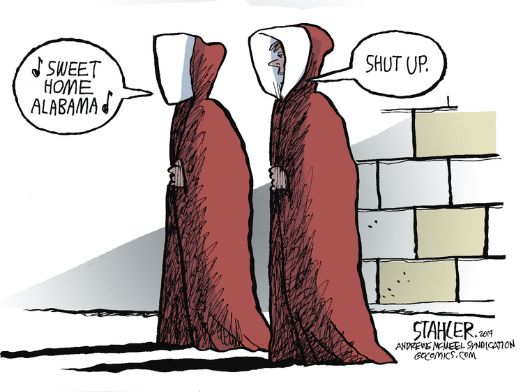
Bonus Links
Jeannie the Teed-Off Temp
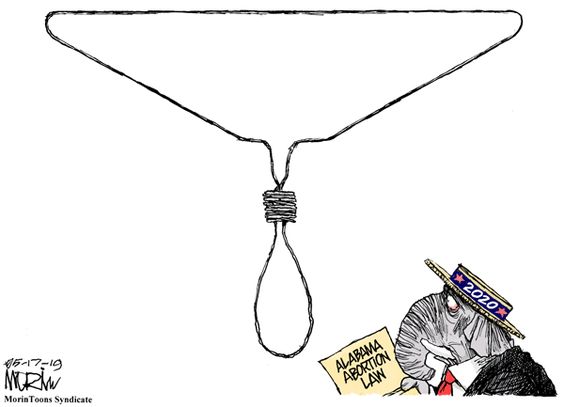
Reader Comment
Current Events





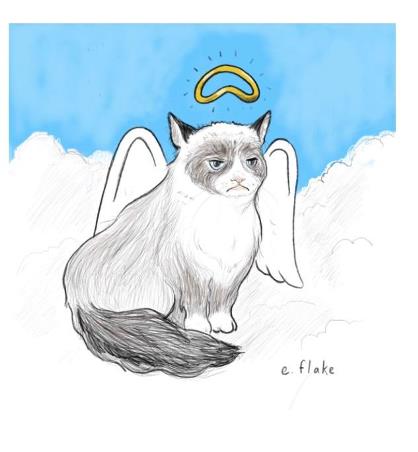
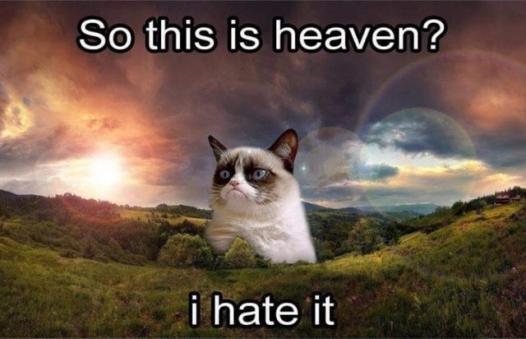
Linda >^..^<
We are all only temporarily able bodied.
Thanks, Linda!
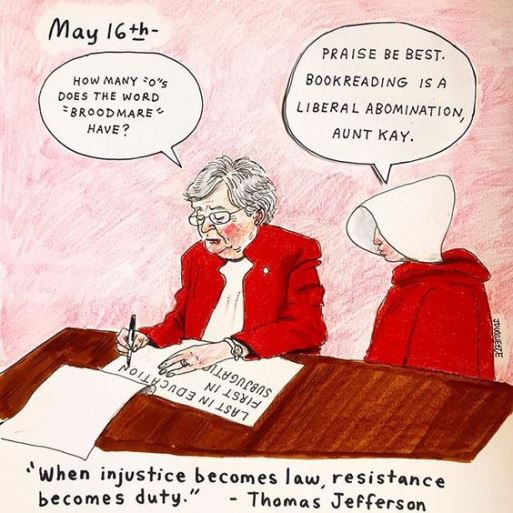


Selected Readings
from that Mad Cat, JD
JD is on vacation.

Visit JD's site - Kitty Litter Music
In The Chaos Household
Last Night
Mostly sunny and extra windy.
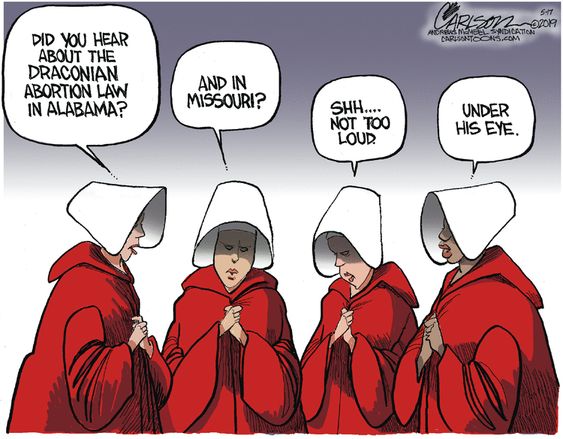
Hits Thursday High
Stephen Colbert
Stephen Colbert's The Late Show scored its best Thursday, an overnight metered-market 3.8, playing host to the entire cast of The Big Bang Theory hours after CBS aired the longest running multi-cam comedy's series finale.
In addition to being Colbert's best Thursday delivery yet, it's his second highest metered market number ever on any night, dating back to his premiere as host, in September of 2015, when he clocked a 5.0 in the early data.
And in the local people meters, Colbert mustered a 0.7 in the 18-49 demo. That's Colbert's best since Monday, February 15, 2016.
Colbert devoted almost all of his show to his sit-down with the cast of the comedy series, hours after about 18 million viewers tuned in to see the end of its 12-season run. That included hosting Barenaked Ladies performing The Big Bang Theory's theme song one more time.
Following Colbert, James Corden's The Late Late Show clocked an overnight metered-market 1.5 which is its best since the night of David Letterman's farewell from Late Show back in May of '15. In local people meters, Corden scored a 0.4.
Stephen Colbert

Canceled
![]()
'Who Wants To Be A Millionaire'
Disney-ABC's game show Who Wants To Be A Millionaire has been canceled after 17-years in syndication, 22 years overall, a show spokesperson confirmed to Deadline.
Based on the same-titled British program, Who Wants To Be A Millionaire was developed for the U.S. by Michael Davies. It premiered on August 16, 1999 and ran through June 27, 2002 with Regis Philbin as host. It moved into syndication in September 2002, and was hosted for eleven seasons by Meredith Vieira. Later hosts included Cedric the Entertainer, Terry Crews and most recently Chris Harrison.
The show announced last fall that it had given away more than $100 million in total winnings since its syndicated debut in 2002. It celebrated the milestone throughout the month of November with a series of specialty shows and giveaways, culminating with a commemorative show in which a favorite past contestant gets a second shot at winning $1 million. The show most recently taped at Caesars Entertainment Studios in Las Vegas, Nevada.
The series was produced by Valleycrest Productions Ltd. and distributed by Disney ABC Home Entertainment and Television Distribution. James Rowley served as executive producer.
'Who Wants To Be A Millionaire'
Retiring After 30 Seasons On '60 Minutes'
Steve Kroft
Steve Kroft will retire from 60 Minutes at the end of his 30th season on the newsmag, CBS News announced Friday.
America's most-watched news program. The 73-year-old correspondent is currently the news magazine's longest tenured reporter, having reported nearly 500 60 Minutes stories - many among the broadcast's biggest moments.
Kroft, who arrived at CBS News in 1980, will announce his plans to step down this Sunday after the broadcast's 51st season finale. The newsmag will celebrate his 50-year career with a tribute broadcast in September.
His last segment for the newsmag, airing this Sunday, is an investigation into bank fraud.
Kroft's career began in the U.S. Army as a correspondent-photographer for Pacific Stars and Stripes in Vietnam after his graduation from Syracuse University in 1967. He got his master's degree from Columbia Journalism School in 1975, and worked in Jacksonville and Miami where he won local television awards for his reporting on political corruption and the thriving drug trade there. CBS News hired him in 1980; he was named a correspondent in 1981. Kroft covered the civil war in El Salvador and the invasion of Grenada before he was posted to the London Bureau, where he reported on European affairs and terrorism for CBS Evening News. That led to his being named principal correspondent for CBS News' fledgling newmag West 57th - Kroft's stepping-stone to 60 Minutes.
Steve Kroft
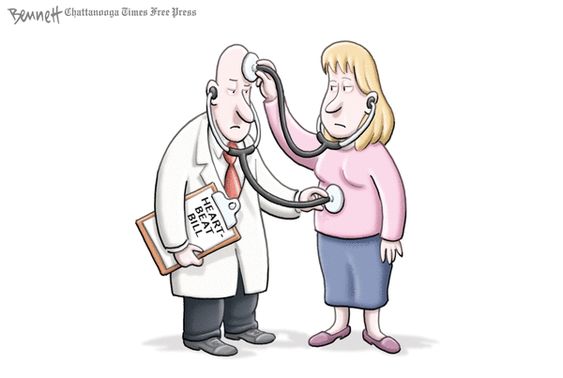
Our Genetic Make-Up
Dogs
A team of Swedish and British scientists have studied the heritability of dog ownership using information from 35,035 twin pairs from the Swedish Twin Registry. The new study suggests that genetic variation explains more than half of the variation in dog ownership, implying that the choice of getting a dog is heavily influenced by an individual's genetic make-up.
Dogs were the first domesticated animal and have had a close relationship with humans for at least 15,000 years. Today, dogs are common pets in our society and are considered to increase the well-being and health of their owners. The team compared the genetic make-up of twins (using the Swedish Twin Registry -- the largest of its kind in the world) with dog ownership. The results are published for the first time in Scientific Reports. The goal was to determine whether dog ownership has a heritable component.
"We were surprised to see that a person's genetic make-up appears to be a significant influence in whether they own a dog. As such, these findings have major implications in several different fields related to understanding dog-human interaction throughout history and in modern times. Although dogs and other pets are common household members across the globe, little is known how they impact our daily life and health. Perhaps some people have a higher innate propensity to care for a pet than others." says Tove Fall, lead author of the study, and Professor in Molecular Epidemiology at the Department of Medical Sciences and the Science for Life Laboratory, Uppsala University.
Carri Westgarth, Lecturer in Human-Animal interaction at the University of Liverpool and co-author of the study, adds: "These findings are important as they suggest that supposed health benefits of owning a dog reported in some studies may be partly explained by different genetics of the people studied."
Dogs
Humans and Neanderthals
Mystery Common Ancestor
Modern humans and Neanderthals may have diverged at least 800,000 years ago, according to an analysis of nearly 1,000 teeth from humans and our close relatives.
This new estimate is much older than previous estimates based on ancient DNA analyses, which put the split between humans and Neanderthals as happening between 500,000 and 300,000 years ago.
However, while outside researchers called the new dental analysis impressive, they note that it's based on one big assumption: that tooth shape evolves in a steady fashion, especially in Neanderthals. If tooth shape doesn't evolve at a steady rate, then "the construction of this paper collapses," said Fernando Ramirez Rozzi, director of research specializing in human evolution at France's National Center for Scientific Research in Toulouse, who was not involved in the study.
That said, it is quite possible that teeth (and Neanderthal teeth in particular) do evolve at a predictable rate, meaning the new study's calculation might be on target. "At the moment, there is the idea of a steady evolutionary rate change in the shape of cheek-teeth," Ramirez Rozzi said.
The researchers examined 931 teeth belonging to a minimum of 122 individuals from eight groups, including humans and our close relatives. Of those, 164 of the teeth were from the early Neanderthals from the Sima de los Huesos ("Pit of the Bones") site in Spain, a sample that includes almost 30 individuals that lived about 430,000 years ago, during the middle Pleistocene epoch.
Mystery Common Ancestor
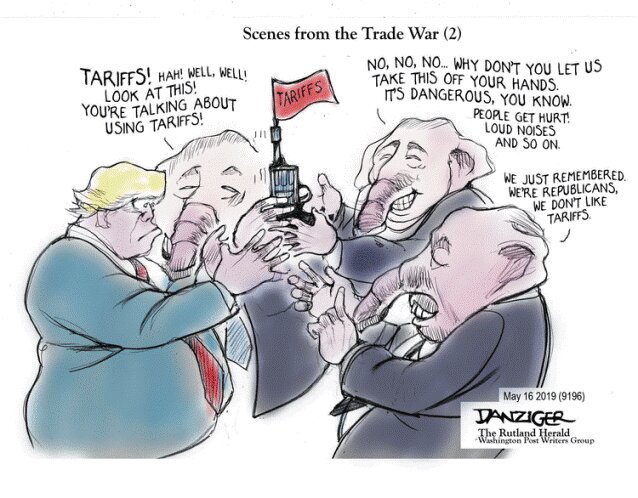
Your Worst Suspicions
Ultra-Processed Foods
A U.S. government-led trial may confirm the worst fears of anyone whose diet starts and ends in the frozen food aisle. It suggests that people who mostly eat ultra-processed foods will take in more calories and gain more weight than those who stick to mostly unprocessed foods-even if the two diets start off with the same amounts of fat, carbs, and other nutrients.
Lots of circumstantial evidence (and common sense) would lead you to think that diets rich in ultra-processed foods can be unhealthy and likely to cause weight gain. But according to the study's lead author Kevin Hall, a senior scientist at the National Institute of Diabetes and Digestive and Kidney Diseases, there's not much concrete proof of a direct cause-and-effect link. That's a long-standing problem in the world of nutrition, since it's hard (and expensive) to study people's diets in isolation.
"There's this old adage that correlation doesn't necessarily equate causation. For instance, it could be that people who eat ultra-processed foods are unhealthy in other ways. Or they could be less wealthy than people who don't eat a diet as high in ultra-processed foods. So you don't know whether ultra-processed foods could be an innocent bystander in all this," Hall told Gizmodo by phone.
To help remedy this gap in evidence, Hall and his team recruited 20 healthy volunteers to vacation for a month at the National Institutes of Health's Metabolic Clinical Research Unit for a randomized, controlled trial-seemingly the first of its kind ever conducted. But while their room and board were free, there was a major stipulation. For two weeks, they would have to eat a diet of ultra-processed foods, while the other two weeks would be spent eating unprocessed foods. Half were randomly assigned to start the unprocessed diet first, and vice-versa.
There's some debate as what exactly qualifies as an ultra-processed food. But Hall and his team decided to abide by guidelines developed by the United Nations, which take into account the different types of industrialized processing a food or ingredient goes through before it ends up on our plate. An example of an ultra-processed breakfast, highlighted by the authors, might include pancakes, sausages, and hash browns, while a mostly unprocessed breakfast would contain blueberries, raw nuts, and oatmeal.
Ultra-Processed Foods
Stone Cross of Cape Cross
Namibia
A German museum said Friday it would return to Namibia a 15th-century navigation landmark erected by Portuguese explorers as part of Berlin's efforts to face up to its colonial past.
"The restitution of the Stone Cross of Cape Cross is a clear signal that we are committed to coming to terms with our colonial past," said Culture Minister Monika Gruetters.
Placed in 1486 on the western coast of what is today Namibia, the Stone Cross was once considered to be such an important navigation marker that it featured on old world maps.
In the 1890s, it was removed from its spot on Cape Cross and brought to Europe by the region's then German colonial masters.
But in June 2017, Namibia demanded the restitution of the cross, which stands 3.5 metres (11 feet) high and weighs 1.1 tonnes.
Stone Cross of Cape Cross
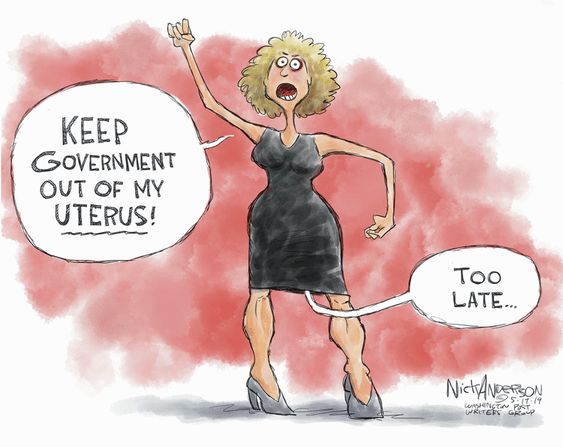
Peasants Diet
Medieval England
Medieval peasants mainly ate stews of meat and vegetables, along with dairy products such as cheese, according to a study of old cooking pots.
Researchers analysed food residues from the remains of cooking pots found at the small medieval village of West Cotton in Northamptonshire. The pottery covers a period of around 500 years during the Middle Ages.
By identifying the lipids, fats, oils and natural waxes on the ceramics, the team found that stews of mutton and beef with vegetables such as cabbage and leek were a mainstay of the medieval peasant diet. However, dairy products such as cheese also played an important role.
"All too often in history, the detail of the everyday life of ordinary people is unknown," says Julie Dunne, at the University of Bristol, UK. "Much is known of the medieval dietary practices of the nobility and ecclesiastical institutions, but less about what foods the medieval peasantry consumed."
Dunne and her colleagues also examined a range of historical documents for their study, finding that medieval peasants ate meat, fish, dairy products, fruit and vegetables. The team say that, prior to this study, there was little direct evidence that this was the case.
Medieval England
Ancient Wads of 'Chewing Gum'
Scandinavia
More than 10,000 years ago, humans who settled in what is now Sweden chewed gobs of sticky pitch, a tar-like material extracted from birch bark. This ancient "gum," recovered from a Mesolithic settlement, still contains traces of DNA - the oldest human DNA from Scandinavia.
The finds are especially valuable because few Mesolithic human bones have been found in Scandinavia; even fewer contain viable DNA.
Scientists found eight chewed-up wads of birch-bark pitch at a site called Huseby Klev, on Sweden's western coast. During the Stone Age, people across Scandinavia used pitch gum as a glue for tools, according to a statement.
Though Huseby Klev was originally excavated in the 1990s, at the time it was not yet possible to test for ancient human DNA. Decades later, however, the researchers were able to extract DNA from three pieces of pitch. The DNA belonged to three individuals: two females and one male.
When the scientists realized that they could sequence DNA from the chewed lumps that had been spat out 10,000 years ago, "the results overwhelmed us," said lead study author Natalija Kashuba, a doctoral candidate in the Department of Archaeology and Ancient History at Uppsala University in Sweden. Kashuba performed the experiments as a researcher with the Museum of Cultural History (MCH) in Oslo, Norway.
Scandinavia
In Memory
Tardar Sauce (Grumpy Cat)
Grumpy Cat - the world's most famous feline, whose frowning face spawned countless memes and an empire that includes plush toys, comics, books, calendars, perfume, sneakers, lottery tickets, and even her own Lifetime TV Christmas special - has died at age 7.
"We are unimaginably heartbroken to announce the loss of our beloved Grumpy Cat," read a statement released early Friday morning by her family and manager. "Despite care from top professionals, as well as from her very loving family, Grumpy encountered complications from a recent urinary tract infection that unfortunately became too tough for her to overcome. She passed away peacefully on the morning of Tuesday, May 14, at home in the arms of her mommy, Tabatha. Besides being our baby and a cherished member of the family, Grumpy Cat has helped millions of people smile all around the world - even when times were tough. Her spirit will continue to live on through her fans everywhere."
Grumpy Cat, also known as Tardar Sauce, was born April 4, 2012. She first came to fame on Sept. 22, 2012, after Bryan Bundesen, the brother of her owner Tabatha Bundesen, posted a photograph of her on Reddit. The photo went on to rack up more than 1 million views on Imgur in 48 hours. Grumpy's permanently scowling expression, caused by her underbite and feline dwarfism, made her a viral sensation - especially after her family posted a few videos of her on YouTube in response to Redditors' accusations that the image was Photoshopped. Grumpy's frown quickly captured the mood and imagination of a disgruntled nation, and at the end of the year, MSNBC named her 2012's most influential cat.
By 2013, Tabatha Bundesen had left her full-time waitressing job and hired Ben Lashes, a former musician who at the time managed feline internet celebrity Keyboard Cat, to focus on Grumpy's career. That year, an appearance by Grumpy at Austin, Texas's South by Southwest Interactive festival drew hundreds of people who waited hours in line to meet her, prompting CNN, CBS, and CNET to declare her the biggest star of SXSW Interactive - over Elon Musk, Al Gore, and Neil Gaiman - and thus setting Grumpy madness into overdrive.
Over the years, Grumpy Cat became an icon, appearing on such TV shows as Today, Good Morning America, American Idol, and The Bachelorette and in publications like Time, Forbes, The Wall Street Journal, and New York Magazine. She was also hired to be the official spokescat for Friskies for a total of five years. In 2014, she starred in Lifetime's Grumpy Cat's Worst Christmas Ever, with Parks & Recreation actress Aubrey Plaza, who also produced the holiday special, providing Grumpy's deadpan voice; Plaza has also been in development with Grumpy's team on a cartoon and movie sequel. As of May 2019, Grumpy Cat had 8.5 million Facebook followers, 2.4 million Instagram followers, 1.5 million Twitter followers, and 1,082 merchandise items for sale in her online shop.
Tardar Sauce (Grumpy Cat)

| CURRENT MOON lunar phases |


